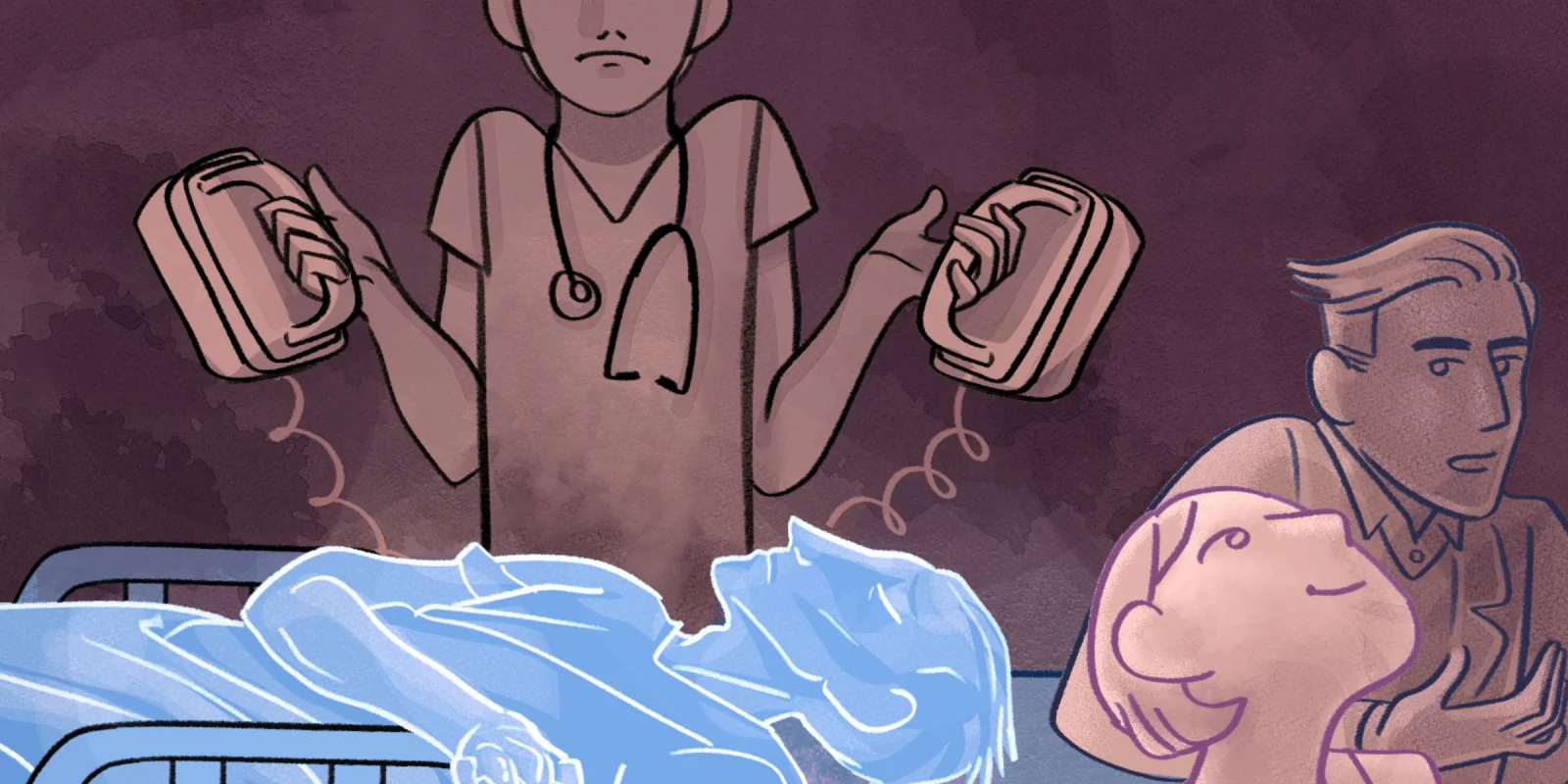If you’ve ever worked (or been) in an ED, you’ve probably observed this scene:
The patients and family members are despondent, scared, and buzzing with uncertainty, while the staff coolly and calmly execute the different phases of care.
I’ve often used the word “unexcitable” to describe some amazing physicians I’ve learned from. That was my barometer for their expertise and suitability for the role — the more cool and calm they were, the better.
One day, a few years ago, my patient Frank’s wife pulled me aside and asked me, “Why isn’t anyone more concerned about my husband?”
I flashed her my “comfort smile” and explained how there was very little that got us excited here in the ED, and how many scenarios are very routine for us. I found myself repeating a script I’ve said before — about how this was just another day in the office.
This kind, gentle woman was not entirely convinced. “If you say so,” she said. “It’s just so hard to read the looks on everyone’s faces.”
Once I heard her explain this to me, it was something I kept noticing over and over in the days and weeks that followed. The disconnect between the patients and family members and the non-verbal communication of their staff.
To some extent this is what we are taught — to compartmentalize and dissociate in order to stay focused on the delivery of care — but is it doing us any favors? Is it possible that stepping into the discomfort and concern with our patients could actually be part of the healing process? And that continuing what we’ve been taught to do is actually widening the empathy gap between us and those we care for?
George Loewenstein is a researcher who has a large body of work on what he calls the “hot-cold empathy gap,” which essentially explores cognitive biases, or the difficulty to perceive the intensity of the counterpart’s experience.
For the past few years, I have been considering the empathy gap and the role it plays in health care and healing.
I’m already picturing some readers chuckling to themselves and leaning on the idea that bedside manner doesn’t matter if you’re a brilliant physician or APP, and I disagree — because that’s assuming that the care and healing we provide is limited to the ailments we cure, and not the patients’ lived experiences surrounding their healing or interaction with the health care system.
In many instances, our compartmentalization of emotions and empathy serves a purpose — frankly, self-preservation is necessary to some extent to protect us from the secondary trauma that we see regularly. Often, we cope through laughter and detachment from the situation. However, we must be careful that patients and families do not observe us in our coping, as it can be widely misunderstood, and can be detrimental to the emotional healing and processing on their side of the experience.
The empathy gap is something I see widening as technology advances, as metrics drive care, and especially as a pandemic ensues (during which patients are presumed to be an infectious germ until proven otherwise, and health care systems are striving to have as little face-to-face interaction as possible, even with those patients who have no complaints).
As technology advances and metrics drive care, the therapeutic presence of health care providers goes down in value, especially as organizations strive for things to be done faster, cheaper, and better.
I have to wonder, is this striving for excellence, or is it a form of perfectionism? Brené Brown says that perfectionism is a self-destructive and addictive belief system that fuels the thought of: If I look perfect and do everything perfectly, I can avoid or minimize the painful feelings of blame, judgement, and shame (1).
Is that what’s motivating our health care system? The avoidance of blame?
Brown also notes that perfectionism is an unattainable goal that is focused on perception rather than internal motivation. So, could health care’s perfectionism be contributing to this empathy gap? Can we, as recovering perfectionists, learn to hold space in the discomfort, the unknown, the unfixable, or the broken?
The empathy gap makes it difficult to understand the lived experience of a patient, but showing that we can be with them fully in that moment is just as powerful as whatever Western medicine we deliver. Being seen and understood, and being given permission to take up space with our feelings, is cathartic, and as healers we can hold that space for our patients and their families.
Ever since I had that exchange with Frank’s wife, I’ve stepped into the discomfort and vulnerability that comes with the privilege of caring for others. It’s okay if the plan of care involves listening, learning, and trying to understand. Let’s embrace the part that empathy plays in our role as healers, and in so doing, strive to bridge the empathy gap. Or, at the very least, sit with the discomfort that the gap exists, while listening, learning, and trying to understand.
References
- Brown, B. (2010). The Gifts Of Imperfection: Let Go Of Who You Think You're Supposed To Be And Embrace Who You Are. Center City, Minn.: Hazelden Publishing.
Amanda Guarniere is a dual-certified adult and women's health NP with a focused clinical background in emergency medicine. She holds a BA in Italian Literature and Violin. She believes strongly in the healing and educational power of storytelling. She is also an entrepreneur and works with other NPs as a career mentor so that they may find personal and professional fulfillment. She is a 2020–2021 Doximity Op-Med Fellow. Amanda has no conflicts of interest to disclose.
All names and identifying information have been modified to protect patient privacy.
Illustration by April Brust







